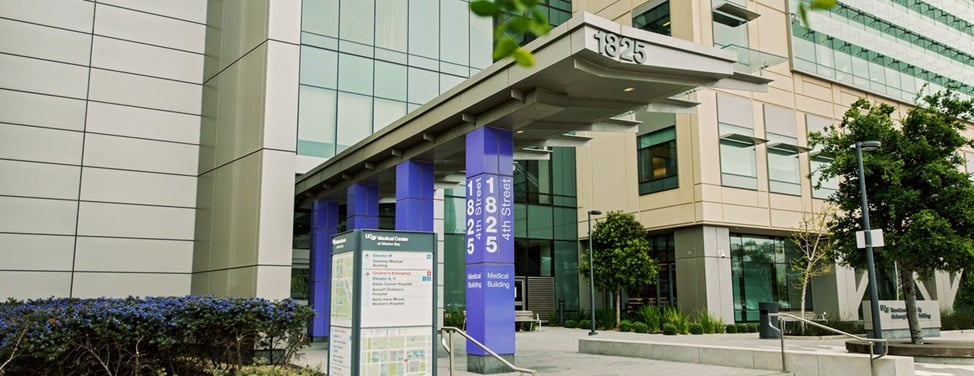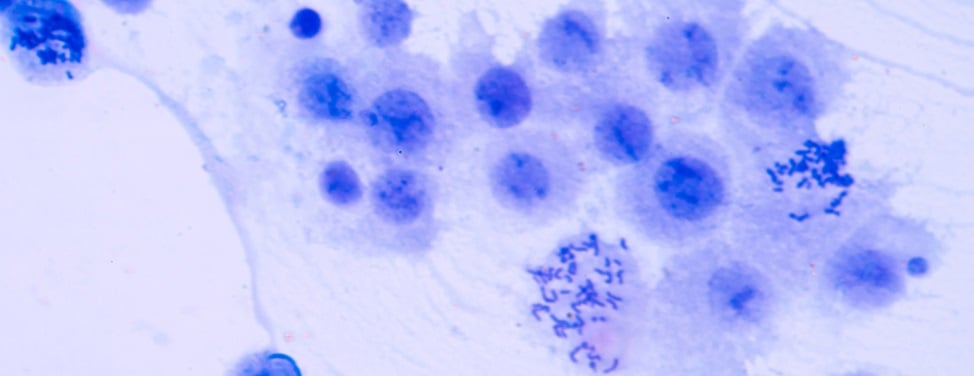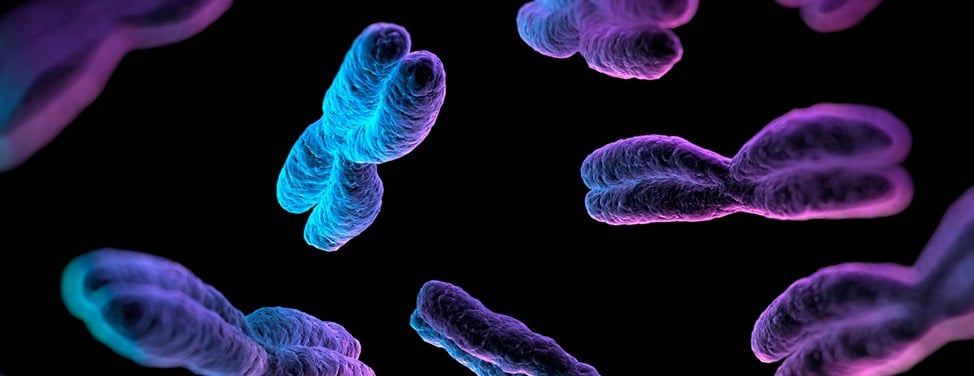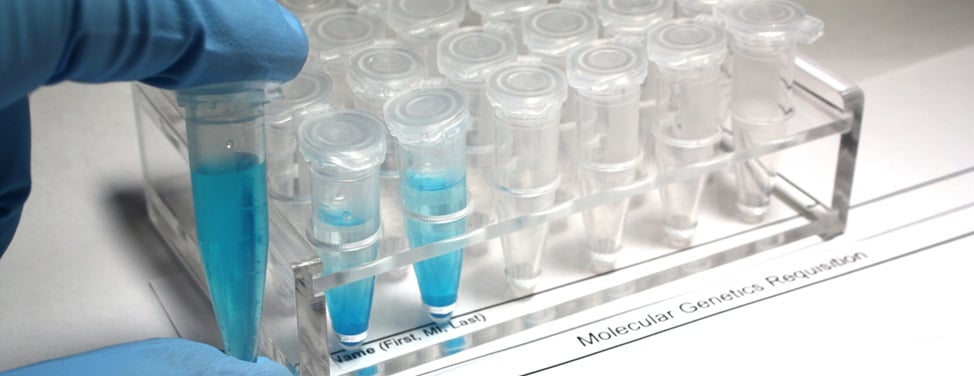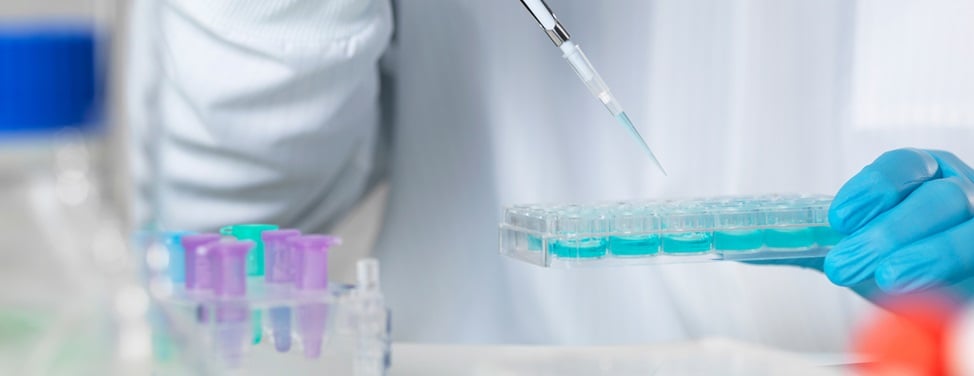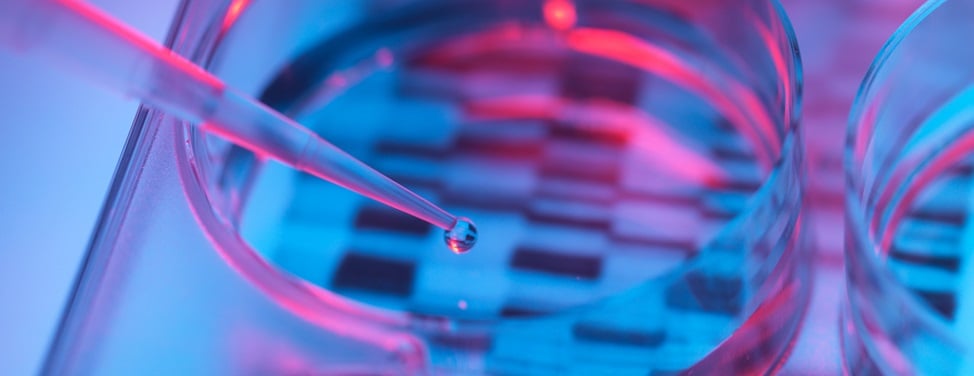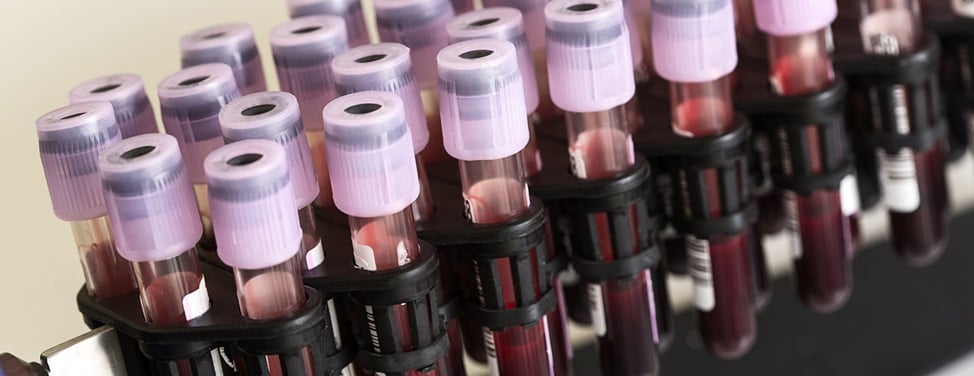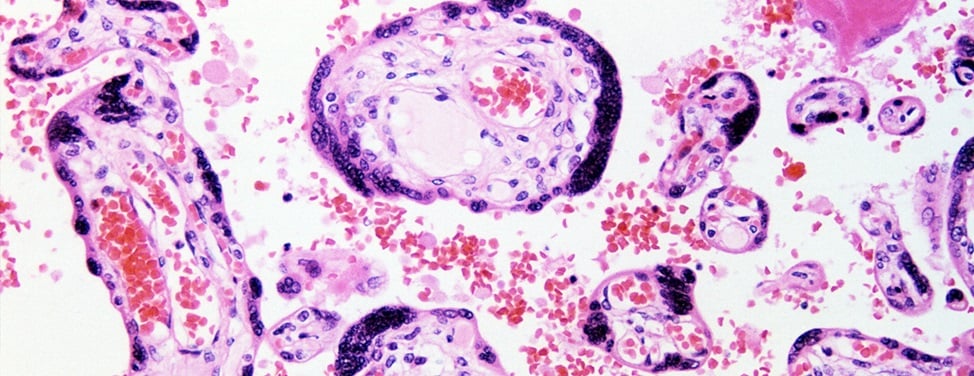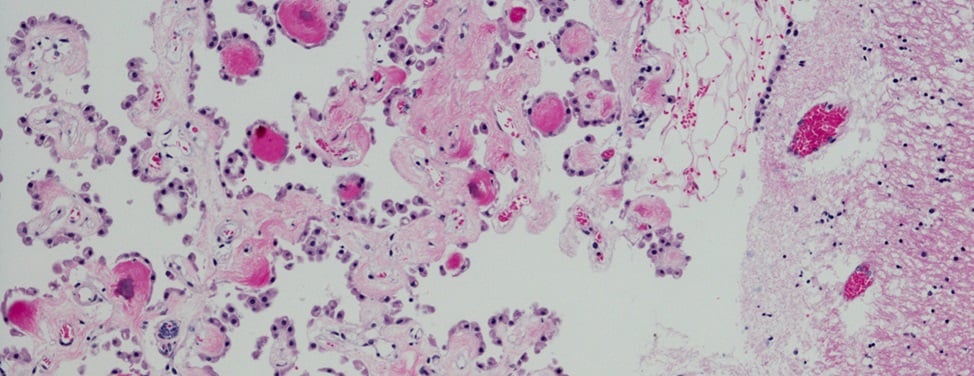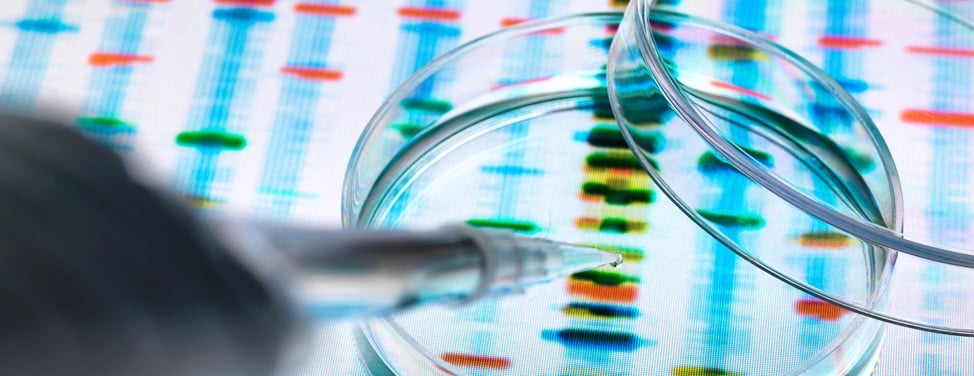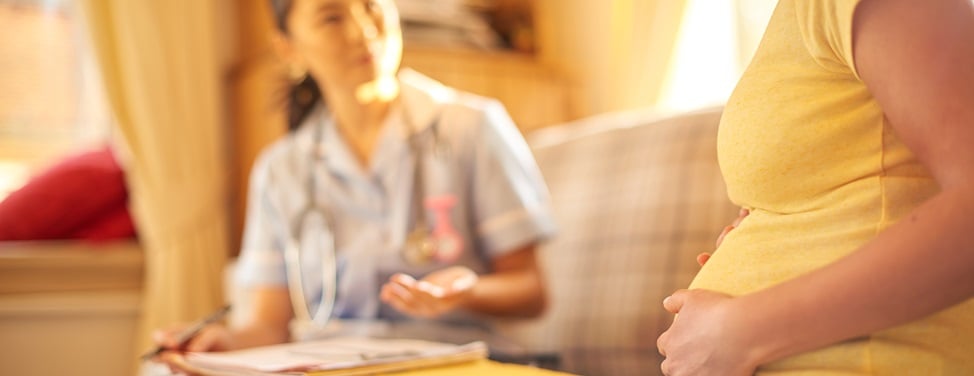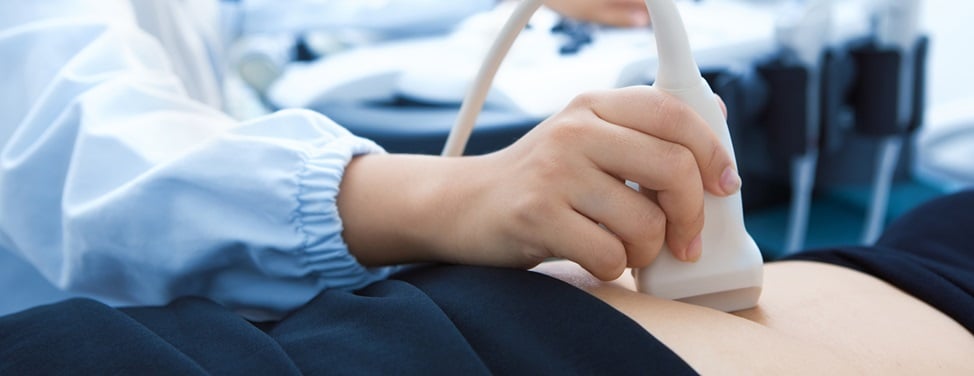- What is cystic fibrosis?
- Is there treatment for cystic fibrosis?
- How is cystic fibrosis inherited?
- How do I know if I am a carrier of cystic fibrosis?
- If my test result is normal, can I still be a carrier?
- What does it mean if I am a carrier?
- Is prenatal testing available?
- Is cystic fibrosis tested on the newborn screen?
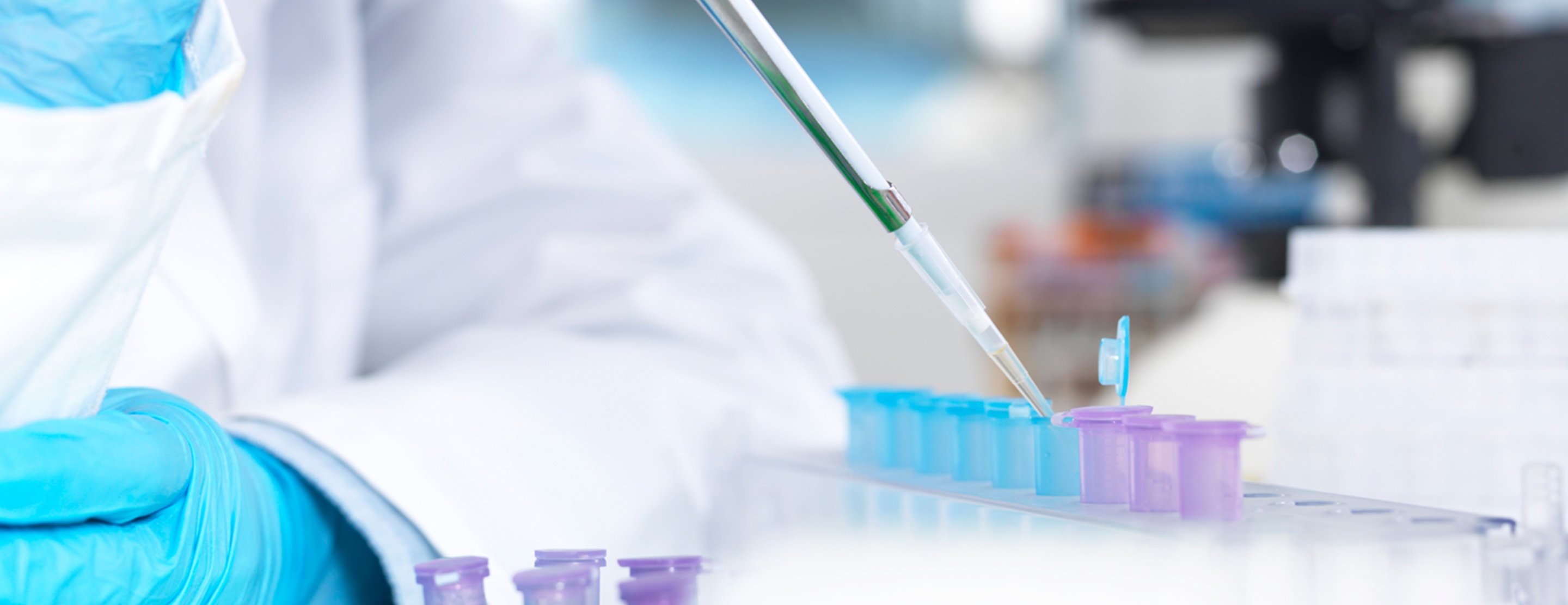
FAQ: Carrier Testing for Cystic Fibrosis
Cystic fibrosis (CF) is one of the most common life threatening genetic diseases, affecting approximately 1 out of 3,300 people. The severity of CF varies, with some children showing symptoms at birth, and others not diagnosed until they are teenagers or adults.
In people with CF, a defective gene causes the body to produce an abnormally thick, sticky mucus that clogs the lungs and leads to life threatening lung infections. These thick secretions also obstruct the pancreas, preventing digestive enzymes from reaching the intestines to help break down and absorb food.
Cystic fibrosis does not affect intelligence. Most males with the condition are infertile.
Is there treatment for cystic fibrosis?
CF treatment has improved dramatically in the past four decades, although there is no cure. Treatment includes antibiotics, dietary enzyme supplements and physical therapy to help clear the lungs. A lung transplant may be an option for some patients.
In the past, most patients with CF did not reach adulthood. Now most survive into their 30s, with the average life expectancy being about 37 years.
How is cystic fibrosis inherited?
Cystic fibrosis is inherited in an autosomal recessive manner. Our genes come in pairs, with one copy inherited from each parent. Some genes have mutations in them, and do not function properly. A person with one non-functional copy of the gene is a carrier. Carriers for CF have no symptoms, but can pass the non-functioning gene on to their children. An individual must inherit two non-functioning CF genes – one from each parent – to have CF.
If both parents are carriers there is a 1 in 4 (25 percent) chance that both will pass on the non-functioning gene, which would result in a pregnancy affected with cystic fibrosis.
How do I know if I am a carrier of cystic fibrosis?
Carrier testing is available through a simple blood test. There are over 1,000 mutations that have been found to cause CF. Carrier screening can be done for the most common of these, and will identify about 85 to 90 percent of carriers in the Caucasian population. Carrier testing is also available for other ethnic groups, but the detection rates and carrier frequencies vary.
If no one in your family has CF, your chance of being a carrier depends upon your ancestry:
- European Caucasians, Ashkenazi Jews – 1 in 29
- Hispanic Americans – 1 in 46
- African Americans – 1 in 61
- Asian Americans – 1 in 90
If you have a family history of CF, your risk may be higher regardless of your ancestry.
If my test result is normal, can I still be a carrier?
Yes. If you have the test and no CF mutation is identified, your chance of being a CF carrier is reduced but not eliminated. Some people are carriers of a rare CF mutation that cannot be detected by routine screening. There is still a small chance that someone with a negative test result could be a carrier and have a child with CF.
What does it mean if I am a carrier?
If you are a carrier, there is no impact on your health. However, there is a chance that you could have a child with CF. Your partner should undergo carrier screening if this has not already been performed.
If only one of you is found to be a carrier, the chance that you will have a child with CF is very low, although not completely eliminated. If you are both carriers, each pregnancy will have a 1 in 4, or 25 percent chance of being affected with cystic fibrosis.
Is prenatal testing available?
If both partners are carriers of cystic fibrosis, prenatal testing is available. Chorionic villus sampling (CVS) at 10 to 14 weeks or amniocentesis at 16 to 20 weeks can be performed to determine if the fetus has inherited two copies of the cystic fibrosis gene mutation.
If you and your partner are both carriers and you are thinking of becoming pregnant, there are other options available. You can meet with a genetic counselor to discuss these issues.
Is cystic fibrosis tested on the newborn screen?
Yes. Before your baby leaves the hospital, his or her blood sample will be collected on a piece of filter paper with a simple heel stick. Your baby will be tested for several different conditions, including cystic fibrosis.
For more information about cystic fibrosis, genetic counseling, or to arrange carrier or prenatal testing, please contact the Prenatal Diagnostic Center.
UCSF Health medical specialists have reviewed this information. It is for educational purposes only and is not intended to replace the advice of your doctor or other health care provider. We encourage you to discuss any questions or concerns you may have with your provider.






